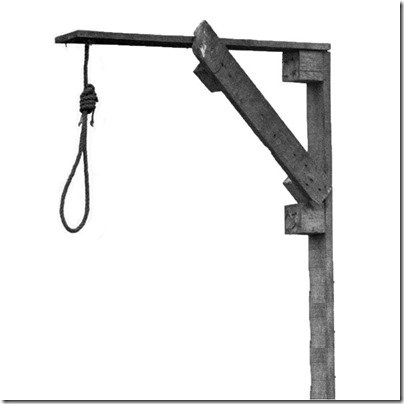
A Supreme Court bench headed by Chief Justice of India (CJI) P Sathasivam today commuted the punishment for Rajiv Gandhi assassins Murugan, Santhan and Arivu from death penalty to life imprisonment on ground of “inordinate delay”, 15 years after the first ever mercy petitions were filed in the case.
Senior advocates Ram Jethmalani and Yug Mohit Chaudhary had argued before the bench comprised of the CJI, and justices Ranjan Gogoi and Shiva Kirti Singh that inordinate delay of more than 11 years in disposal of their mercy petitions was a violation of Article 21 (right to life and personal liberty) of the Constitution and various International Conventions and Universal Declarations to which India is a signatory.
Attorney General Goolam Vahanvati and Additional Solicitor General Sidharth Luthra had argued for the Union of India that the petitioners had not demonstrated that they had suffered because of the delay.
The bench ruled:
“Exorbitant delay in disposal of mercy petition renders the process of execution of death sentence arbitrary, whimsical and capricious and, therefore, inexecutable. Furthermore, such imprisonment, occasioned by inordinate delay in disposal of mercy petitions, is beyond the sentence accorded by the court and to that extent is extra-legal and excessive
Regardless and independent of the suffering it causes, delay makes the process of execution of death sentence unfair, unreasonable, arbitrary and capricious and thereby, violates procedural due process guaranteed under Article 21 of the Constitution and the dehumanizing effect is presumed in such cases, added the bench.
Thus, the argument that the petitioners are under a legal obligation to produce evidence of their sufferings and harm caused to them on account of prolonged delay is unknown to law and will be misinterpretation of Shatrughan Chauhan. There is no requirement in Indian law as well as in international judgments for a death-row convict to prove actual harm occasioned by the delay. There is no obligation on the convict to demonstrate specific ill effects of suffering and agony on his mind and body as a prerequisite for commutation of sentence of death.”
Picture by Relpa1
threads most popular
thread most upvoted
comment newest
first oldest
first
threads most popular
thread most upvoted
comment newest
first oldest
first